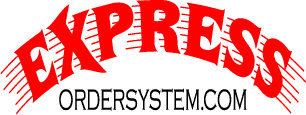
Growing a brand in today’s fast-paced digital world means familiarizing yourself with some basic concepts of digital marketing. And that’s a little like learning the alphabet.
While SEO, SEM and SMM might sound like a foreign language, they’re actually fairly simple to understand and even put in practice once you get the hang of things. So without further ado, let’s dive in and explore the digital marketing alphabet. Before you know it—and with a little practice—you’ll be turning to these concepts to get the most from your own campaigns.
Why Digital Marketing?
Digital marketing is the engine that powers online initiatives. It leverages the internet and various digital technologies to promote your products or services. With 66% of marketers boosting company trust and 80% enhancing brand awareness through digital marketing, it's a strategy that demands attention.
Understanding digital marketing means getting to grips with a few key acronyms, which are core components of any digital marketing strategy: Search Engine Optimization (SEO), Search Engine Marketing (SEM) and Social Media Marketing (SMM). Let’s discuss.
The art of Search Engine Optimization (SEO)
SEO is about fine-tuning your online presence to be more visible on search engines like Google, Bing and Yahoo. The higher you rank on the search engine results page (SERP), the more visible your content will be. A key SEO strategy involves using clear copy and strategic keywords on your website and digital content that make it easy for a search engine to understand what you’re offering and, therefore, recommend your content to searchers.
SEO involves a learning curve, but it’s not that difficult and is a powerful way to boost your results once you get the ball rolling.
The strategy of Search Engine Marketing (SEM)
SEM is one of the ways a digital marketing budget can really get to work. It involves buying Pay-Per-Click (PPC) ads that appear on search engine results pages. In other words, it’s a way to get your content on people’s screens that’s a little faster and easier than SEO (though not necessarily better; people may be more or less likely to click on search result ads versus organically appearing websites). SEM allows for tailored strategies like retargeting (displaying ads to people who have previously visited your website), geotargeting (targeting customers based on their geographic location) and demographic targeting (focusing on consumers within specific demographic profiles) to help you get granular. These tactics are about investing dollars to secure a prime spot in the paid section of search results, thereby enhancing visibility and attracting potential customers.
The power of Social Media Marketing (SMM)
SMM is a strategic approach to harnessing the power of social media to boost a brand, engage with an audience and drive traffic to a website. It involves creating engaging organic posts and running paid social media ads targeting specific demographics.
In other words, SMM gives you the best of both worlds: You can vie for organic traffic without investing extra money, or you can use platforms like Meta Ads Manager to pay for your digital ads to show up in people’s Facebook and Instagram feeds. When you use this strategy, you’ll be able to segment your audience in a ton of different ways to get the best bang for your buck.
The perks of digital marketing
Digital marketing offers numerous benefits beyond just reach. It's cost-effective, enabling you to reach a large audience without breaking the bank. It's also measurable, allowing you to track and analyze campaign performance at a highly granular level.
The targeted approach of digital marketing also allows for audience segmentation, ensuring your message reaches the right people at the right time. Plus, audiences can be created that match current buyers’ personas. Unlike traditional marketing, digital marketing puts you in control of many more variables of the cycle.
Digital marketing is more important—and effective—than ever. It's a dynamic, affordable and measurable way to reach and engage with your audience. Whether you’re a small business owner or an established firm, getting more familiar with the digital tools at your disposal could be your first step to improving your results and gaining more customers.


